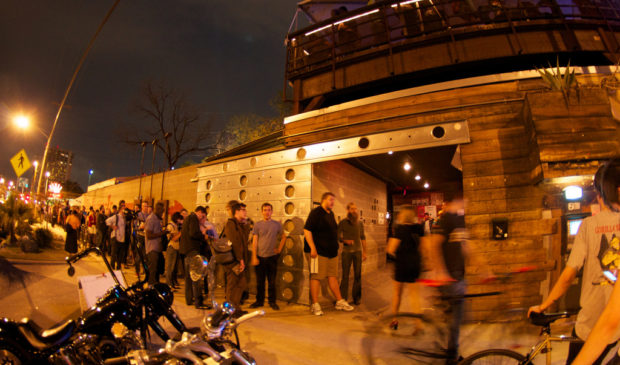Creative community supporters pushing live/work CodeNEXT additions
Thursday, April 6, 2017 by
Chad Swiatecki Austin creatives are stepping up their push to amend future drafts of CodeNEXT so that the city’s future building and development road map makes specific allowances for music and artistic spaces.
Dave Sullivan, a member of the CodeNEXT advisory group and vocal supporter of Austin music, has begun circulating a proposal that would amend the general planning standards for the entire CodeNEXT document. The change to Chapter 23-3 – which makes a priority of preserving parkland and urban forests, protecting water resources and encouraging affordable housing – would add “sustain the local arts, music, and culture communities and industries” as a mission of the long-in-coming update to the city’s prevailing planning guide.
The creative-focused changes are just some of the many edits those involved in CodeNEXT want to see as it progresses through several iterations before its expected adoption by City Council next spring.
Sullivan said the total lack of considerations for creative and cultural districts in the plan’s first draft was a concern for him and other planning stakeholders, with allowances for live/work/sell planning uses allowed by right as long as the structures involved conform to new building codes.
“We’ve had stakeholders with loud voices on issues they are concerned about, but artists and musicians historically haven’t had as loud of a voice as those other groups,” he said.
“In the first (CodeNEXT) version,” Sullivan continued, “there was no discussion of arts districts like the Red River Cultural District, but if we want one (cluster) in every Council district, we need to describe that explicitly. We also need to see the density bonus included for arts and performance spaces that are seen as a public asset.”
Referencing passages from the city’s Code Prescription on Household Affordability, Sullivan’s proposal notes that city leaders have adopted goals such as:
- “(D)ensity bonus provisions will be evaluated to determine if they can incorporate preservation or development of a music or creative venue that will be used for rehearsal, gallery, studio, performance, or exhibit spaces and offices.”
- “Allow(ance) for compatible retail and commercial uses by right including arts, culture and creative uses such as rehearsal, gallery, studio, performance or exhibit spaces and offices in areas where form-based zones have been applied and a diversity of uses is desired.”
Joining the effort to spread the word and generate more feedback to city officials is Brad Carlin, managing director of Fusebox Festival, and Zac Traeger, director of the Museum of Human Achievement event space.
Carlin said he and Traeger were dismayed when they first engaged with the planning consultants and other officials involved in the CodeNEXT effort because their understanding of the needs of creatives in Austin wasn’t taken into consideration.
“None of us knew about this process, and it was obvious at the first event we went to that we weren’t speaking the same language,” he said.
At a recent joint meeting of the Music and Arts commissions, Carlin discussed his concern that creatives’ needs and perspective might be left out of CodeNEXT because of the way it is scheduled to evolve in a stair step-like fashion. Because of this, he said it is crucial for city leaders and creative stakeholders to work together.
“This is a longer process, but I’d like to see the energy and focus that were put in the (Music and Creative Ecosystem) Omnibus put into CodeNEXT, even though the omnibus was more of a short-term thing,” he said.
“We do have a year before we get it adopted, but I don’t want to give the community a pass just because there’s more time,” he continued. “We have a much better shot of getting these issues in it if we jump in during the time when we have a window, which is now.”
Photo by Nash Cook made available through a Creative Commons license.
The Austin Monitor’s work is made possible by donations from the community. Though our reporting covers donors from time to time, we are careful to keep business and editorial efforts separate while maintaining transparency. A complete list of donors is available here, and our code of ethics is explained here.
You're a community leader
And we’re honored you look to us for serious, in-depth news. You know a strong community needs local and dedicated watchdog reporting. We’re here for you and that won’t change. Now will you take the powerful next step and support our nonprofit news organization?









